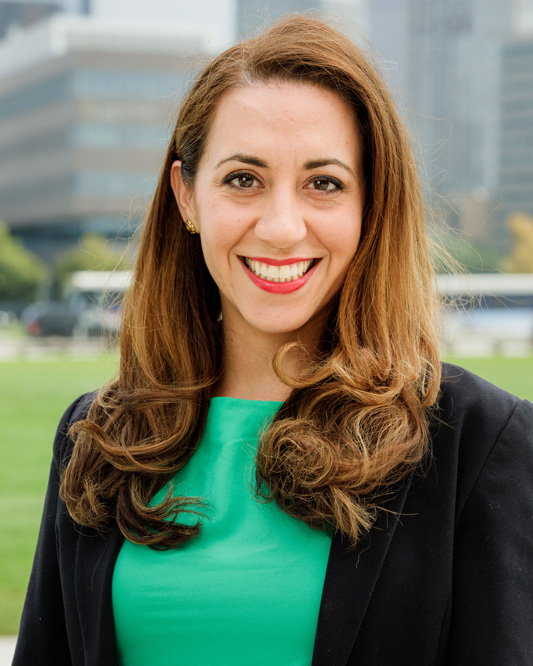Faculty Directory

Sofia Chaparro
Assistant Professor, Culturally & Linguistically Diverse Education
Co-Book Editor, Bilingual Research Journal
- Affiliate Faculty, Teaching
- School of Education & Human Development
Office Hours: Tuesdays 3:00 - 5:00 pm
I am originally from El Paso, Texas, where I grew up bilingually and transnationally between El Paso, Texas and Cd. Juárez in Mexico. I am the daughter of Mexican parents and bilingual educators, and I attended elementary school in Mexico. In college, I studied psychology and quickly realized my passion was education. I obtained my teaching license and masters' degree from the Boston College, where I was part of the Donovan Urban Scholars Program. I began my teaching career as a bilingual teacher in Boston Public Schools, teaching 2nd grade within a TWI program. I then taught 4th grade in El Paso, Texas, until deciding to attend graduate school at the University of Pennsylvania in Philadelphia. I have always had a passion for bilingualism, and for teaching and learning, and I am lucky enough to do it for a living!
Areas of Expertise
- Two-Way Immersion Bilingual Programs
- Gentrification and Bilingual Education
- Language Ideologies in Educational Contexts
- Ethnographic Research Methods
- Teacher Research/Practitioner Inquiry
Education, Licensure & Certifications
- Doctor of Philosophy (PhD) in Education May 2017 Graduate School of Education, University of Pennsylvania, Philadelphia, PA
- Master of Education, Curriculum and Instruction, with concentration in Teaching English Language Learners
- Donovan Urban Scholars Program, Lynch School of Education, Boston College, Boston, MA 2006
- Bachelor of Arts in Psychology Stanford University, Stanford, CA 2004
Resumes/CV:
Awards
- 2018 James E. Alatis Prize for Research on Language Planning and Policy in Educational Contexts
- 2018 Jolley Bruce Christman and Steven S. Goldberg Annual Award for Best Dissertation in Urban Education
- First Place, Outstanding Dissertation Award, AERA Bilingual Education Research SIG, 2018
- Spencer Fellowship Foundation/National Academy of Education (Dissertation Fellow 2015)
- Ford Fellowship Foundation (Dissertation Fellow 2016)
Faculty by Program
- Applied Behavior Analysis
- ASPIRE to Teach
- Counseling
- Couple & Family Therapy
- Culturally & Linguistically Diverse Education
- Early Childhood Education
- Human Development and Family Relations
- Leadership for Educational Organizations
- Learning Design & Technology
- Learning, Developmental & Family Sciences
- Literacy Education
- Research & Evaluation Methods
- School Psychology
- Special Education
- STEM Education
- Teaching